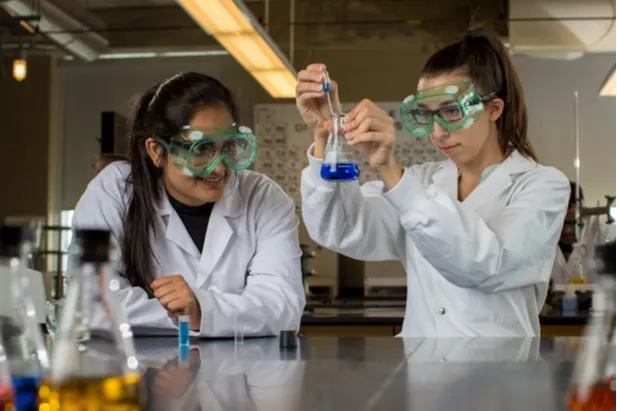What we know so far:
- Old college prep advice (the smartest, hardest working, and most impressive students get in) doesn't work anymore
- Old strategy causes burn out on teens
- Being healthy and happy throughout high school actually increases your odds of being competitive for college—if you do it right
To begin, colleges love smart, hardworking, impressive students.
But students who burn themselves out trying to be the best at everything generally have no idea who they are or what matters to them.
On an application, they look like very hardworking, boring multitaskers.
There will certainly be tens of thousands of applications that look like boring, hardworking multitaskers.
To succeed, you need to keep your application as far away from that pile as possible.
If this feels confusing, stay with me.
First, admissions officers are not just taking the 2000 smartest or hardest-working students and rejecting the rest. In fact, admissions officers talk about “shaping a class” each year.
“Shaping a class” means admitting a rich, diverse group of students who come together like an ecosystem, where everyone can support each other and learn from each other.

To accomplish this, admissions officers are looking for people who represent different aspects of that diversity.
So one of the keys to your success will be to clearly communicate where you would fit into this rich, diverse class of students.
One more time for the people in the back—you do not want your application to look like every other hardworking high school student who is trying to stand out by working hard better than anyone else.
Every freshman class will need a few of these hard workers, but when the goal is to put together a large variety of types of students, only a few of the applications from the worked-so-hard-that-they-never-figured-out-who-they-are students will be admitted as part of that rich, diverse class.
Take Harvard University as a case in point. Drew Faust, the president until 2018, famously said that Harvard could fill TWO classes each year with JUST valedictorians. And then would have leftovers after that.

But in reality, only a tiny fraction of those valedictorians are admitted, while many, many students with worse GPAs and test scores get in.
The last thing Harvard or any other college wants is 2,000 clones of the same type of person.

So your first priority, if you want to increase your chances of getting into a highly selective school, is to get your application out of that pile we just described.
And don’t worry—this guide will tell you exactly how to do that!
But before we go there, let’s discuss the priorities that admissions officers have when they shape each class.

1. Institutional Priorities
Each school needs to recruit the right students to meet the specific needs of that school.
So if all of the tuba players in the orchestra graduated last year, then this year, the admissions team will be told they must admit a certain number of tuba players.
(Interestingly enough, if the college doesn’t have the musicians it needs to fill the orchestra, it usually will pay a member of the community to come to the concerts and fill that position—obviously the college would rather have college students filling the orchestra than community musicians.)
Similarly, each athletic team needs to be filled with the right players for each position.
And if the school just spent $3M on a new biology laboratory, you’d better believe they will want to bring in biologists who can make good use of those facilities.
Also, colleges are businesses.
They have very high expenses, and one of the institutional priorities is to be able to pay all those expenses.
Few colleges have such large endowments that they do not need to worry about paying those expenses with undergraduate tuition.
2. Healthy, Happy Class of Students
Admissions officers know that some people become impressive by stepping on the backs of others around them.
When making admissions decisions, these officers work hard to figure out your character.
They want to find a group of students who will get along for four years, will push each other to be better, and will continue building a strong and friendly alumni network after graduation.
Character matters.


3. Healthy, Happy Class of Students
The third thing most selective colleges are looking for is obvious when we bring it up—the college wants fame and prestige, which comes from alumni who do great things.
I lost track of how many times I heard that eight U.S. presidents went through Harvard while I was earning my master’s degree there. I don’t think anyone can make it through Harvard without learning that fact (or that the school with the second most was Yale, with three).
Why do we keep hearing about how many Rhodes Scholars and Nobel Prize winners and government leaders come from Harvard?
Because Harvard cares about this stuff.
And you’d better believe they are looking for the ninth U.S. president now.
Each selective school gains prestige and glory when a graduate goes on to write a New York Times best-selling book, solves a difficult problem, or becomes an important leader.
Colleges also know that successful people are far more likely to donate money to the school as well.
Instead of stacking up all the applicants and looking for the hardest-working or most talented test-takers, colleges want to find the combination of diverse students who can come together and create the ecosystem that will lead to tremendous success after graduation.
Part 3 of 7. How to Present Yourself So Colleges Want You.
